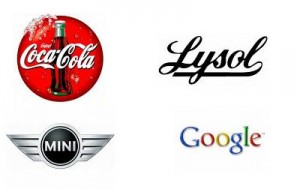Brand Consulting: What Can A Consultant do for you?
Often, business owners understand what a brand is, but have no idea how to get started creating brand identity. And to be honest, that is expected since brands take a considerable amount of time to permeate the interests of the public. Plus, consumers can be fickle, and as a result, many brands do not take. Consumers do not accept them or do not identify with them, making them duds in the marketplace. And since branding typically involves all aspects of a business from the very beginning right through its mature stages of development, it might be better to consider brand consulting or more specifically, what can a consultant do for you?
 One of the key issues with branding that most business owners do not recognize is that branding is a life-long endeavor. If you look at companies that have been around for over one hundred years and even those as young as fifty years, everything they do speaks about their brands. All of their decisions take into account their brands, not only the name of the company, but the brand names of the products. Everything works in tandem to continue the brand that is known to consumers.
One of the key issues with branding that most business owners do not recognize is that branding is a life-long endeavor. If you look at companies that have been around for over one hundred years and even those as young as fifty years, everything they do speaks about their brands. All of their decisions take into account their brands, not only the name of the company, but the brand names of the products. Everything works in tandem to continue the brand that is known to consumers.
What is difficult for new startups is understanding and actually acknowledging the longevity of a brand. Branding is not just about creating a name that some people know. It is about making decisions that affect the long-term viability of a brand. Most business owners cannot see this far ahead. And that is not a criticism. It is a fact that they are trying to get their businesses up and running and then keep them afloat. Do they really have time for branding? So, the first thing that a brand consultant can do for you is look at the bigger picture.
The branding consultant can spend the time doing the legwork and creating your long-term plan. She can arrange meetings with people that she knows can produce artwork, logos, and other creative material that will be important to your brand. She will organize the bids on projects and make the final short list for your review. So, the second thing that a consultant can do for you is free up your time to work on the meat and potatoes of your business, while understanding that you do need someone working just as hard on your potential brand.
Brand Management Basics
Building a brand which will last through thick and thin is one of the most difficult things a company can do. Because brand is not just about quality products, excellent customer service, and how much money you have to advertise, even if you are a successful company, you may not be known as a brand. A brand’s qualities can be physical and are also perceived. It is the perception or value that is hard to develop and maintain.
For a brand to propel itself into daily consciousness, it should reflect several basic traits. It must take on a personality of its own and exhibit qualities of trust, sincerity, authenticity, staying power, mass appeal, uniqueness, and it must have some meaning of importance to its users. All of these qualities are the mark of an excellent brand. The logo alone and fancy advertising will not make the product a brand. So recognizing that growing a brand is more than visual appeal, let’s examine seven brand management basics.
- First and foremost, your brand needs a problem and solution statement much like a mission statement. You need to create a problem and in turn show how your product fixes that problem. Your statement must be well-defined, clear-cut, and you must understand the market to which you make your appeal. If your product is a luxury yacht and you are selling the lifestyle, you are not going to find your customers riding on the bus.
- Your brand must be unique. You cannot appear to copy ideas from other companies. You must be different in appearance, and although you may fix the same problem as another company, your message clearly needs to be your own. Identity is everything when branding.
- You need to understand the importance of being first at something when your brand is new. This is similar to being unique but if you can say you were first at launching a product, your brand will be the one remembered by consumers.
- Everything that is associated with your brand must be consistent. The same slogans, the same tag lines, the same logo, and the artwork in your office. Package recognition is crucial. Everyone needs to be on board and “walk the walk”. There is no room for conflicting or confusing messages. There is only one message to communicate. And you cannot change that message. Take the recent example of Starbucks Coffee®. They were a “yuppie-type” establishment serving expensive coffee. Then, to get a larger market share, they launched an instant coffee. What does this say about their brand and what does it do to the message?
- You need to be credible and sincere. Your target market needs to see that your focus continues and that the brand remains what you said it was. Decreasing quality, changing themes, and gross deviations from the norm will not endear your brand to loyal users. Just think about the “New Coke” debacle and you will instantly understand this basic premise to brand management.
- You must be persistent, continually researching the target market, understanding existing customer preferences, and even monitoring competitor reaction to your product.
- You must be solid when talking about the brand. You must have conviction that it will suit your customers’ purposes and that it is the ideal solution. And you must be willing to put that theory to the test. You must deliver.
Indeed, managing your brand is a huge undertaking but it is essential to long-term branding. Success is found from understanding and committing to brand management basics.
The position of Branding in the Marketing Mix
One of the biggest dilemmas of a company, especially a new endeavor, is how to fit branding into the total promotional and marketing strategy. Ideally, the company needs sales in the beginning and most likely cannot afford to devote resources to branding. But if branding is not considered right from the start, there could be issues down the road since the company did not have a well thought out plan. So the question remains, what focus should be given to branding and specifically, “what position should branding hold in the marketing mix”?
Indeed, everyone wants to be or own the newest buzz word or gizmo. Everyone thinks that their ideas are the greatest thing and they can sell billions of “whatever”. And while some of them may be right, a brand can only become a brand if it has sales. Focusing on a brand alone is done at the detriment of revenue. Major corporations have the resources behind them to launch new brands without seriously impacting their structure. But for smaller companies and start-ups, finding a revenue stream is crucial.
A couple points that need to be remembered when addressing issues about branding is that getting a brand really known could take years. Branding is a long-term strategy. It is also not always quantifiable. When bigger companies come knocking with offers to purchase your product or company, you basically know that you have become a brand, but how do you work on marketing your product or service while at the same time trying to develop the brand?
Branding Campaigns Explained
Think about some of the television commercials that quickly come to your mind. Do you remember them because of the products involved or do you remember them because of the messages of the commercials? In most instances, it is because of the commercials. You find the ads to be neat or cool. But they fit the products perfectly. That is the purpose of a branding campaign.  To make the advertisement mean something to you, while at the same time to promote the product or service being sold.
To make the advertisement mean something to you, while at the same time to promote the product or service being sold.
Some of the oldest commercials for investment houses and banks used (and still use today) branding campaigns to push consumer deposits. When trying to get their clients to buy different pension products, the deposit mechanism was second to the lifestyle that the client could enjoy. “Invest your money for thirty years and live like a king when the time comes to retire.” They showed pictures of people lying on beaches in the Caribbean being served fresh fruit and cocktails. The ads portrayed seniors as carefree souls traveling about the world with no worries in sight. The investment was secondary. This is a branding campaign, and it works because people buy into the sales pitch. They imagine themselves on that yacht!
A brilliant example today of a complete branding campaign is Fido cell phones. Most people know that Fido is a dog’s name. And all of the company’s literature, slogans, print ads, website, billboards, and television commercials clearly show a dog. And not just the same dog. They use many breeds because they are making the point that customers are different. Also, by using different dogs, they appeal to a greater number of people. The brand is not associated with one type of dog, therefore, the phone is not stereotyped. Further, the customers are called “Fido Owners”. The logo is the word “fido” sitting beside a yellow doghouse. And when they show someone giving a Fido telephone as a gift, there is no phone in the box, a dog peeks out. Everyone knows you are not giving a dog and that the telephone is the product, but the cell phone is not the focus of the ad. Indeed, this is an excellent example of a branding campaign. Everything ties together in symmetry.
Choosing a Branding Strategy
Indeed a branding strategy is important when marketing your product. You need to have a clear idea of what your brand represents and to whom the brand is most important. One of the earliest decisions that you will have to make is what name to give your brand. In addition to actually choosing your name, you need to decide whether the name should be indicative of the product. That is to say, is the name a description of the item? The other choice would be to brand a term or a word that is completely made up. Apple computers is an example of this strategy because apples, as fruit, have no bearing on computers, nor does the word represent an acronym or abbreviation of anything associated with the computer world.
Additionally, when choosing a branding strategy you need to look at whether you are better to brand the company, the product, or even yourself. If you are a motivational speaker, for instance, branding yourself makes more sense than branding a book you wrote. How you conduct your seminars, as well as your personality are your unique brand.
If you are a large company with many products, you might brand similar items. Baby care products might be one brand while kitchen cleaners may be another separate brand. But, there are examples of companies whose brand covers more than one niche. Ivory® is one such brand. You can buy personal bars of soap, dish washing liquid, and powder laundry detergent. At the outset, you might wonder who would want to buy skin cream from the same company that sells detergent, but the point is the products are all soap. And the brand promotes the fact that the products are “pure”. And that is how consumers know the brand. As you can see there should be something that ties the products together as a brand.
Personal Branding on the Web
Nowadays because of the internet, it is much easier to brand yourself than it was years ago. Previously, unless you stayed in the limelight with tours, seminars, writing books, and the like, it was difficult to get people to know you. Proximity was a huge problem and many people were known regionally, but not nationally or even internationally. Today, with the proper strategies and continuous promotion, personal branding on the web is quite possible.
 Obviously, there are many ways to brand oneself on the internet. The idea is to keep your name in the forefront, and associate yourself with things that best describe your area of interest or expertise. For example, an accountant can scour reputable business forums and answer questions regarding ledger entries. In addition, many regulars on forums admit to having problems with accounting software. This is a prime opportunity for an accountant to brand herself on the internet.
Obviously, there are many ways to brand oneself on the internet. The idea is to keep your name in the forefront, and associate yourself with things that best describe your area of interest or expertise. For example, an accountant can scour reputable business forums and answer questions regarding ledger entries. In addition, many regulars on forums admit to having problems with accounting software. This is a prime opportunity for an accountant to brand herself on the internet.
Another avenue of personal branding on the web is writing a small bio at the end of articles. Whether you post articles on your own sites, or you submit to article directories, your bio should succinctly tell users who you are and what you offer. Try not to use the bio box as a direct sales tool, but rather to get information out about yourself.
E-books are a super way to promote your brand. While they are not as prestigious “real” printed books, they nevertheless, show people that you are a contender in your field. By giving away useful information, you keep your name out there.
Small things can help your personal branding on the web. For example:
- Create a branding page on your website. This could be your “about” page.
- Do not use the words “about the author”. Use “about so-and-so” – your own name. Make sure the title of the page, that which people see at the very top left of the browser, has your name. You want the search engines to pick up your name, not the word “author”
- Use keywords to describe your area of expertise, your talents, and your name in your SEO efforts. When someone searches “CMA accounting guru”, you want your name to be first.
HotForWords – Personal Branding
The woman behind HotForWords, a Youtube phenomenon, has taken her youtube channel and turned it into a money-making internet brand. Not too long ago – she started using her carefully built brand for advertising reasons. Here’s a video of her talking about how to do a first “online date’ – linking back to date.com and getting serious cash in return.
She deserves it. Her brand is ready for… some profits! ![]()

Finding the Perfect Branding Agency
Branding agencies are sometimes called marketing agencies or advertising agencies (ad agency). Although in some respects, these terms can be used interchangeably, if you really want to brand your product, you need something different than an ad agency.
Ad agencies usually are contracted by large corporations to develop a consistent or fluid advertising campaign. Print ads may differ depending on the audience of the magazine, but the message is the same. Marketing and ad agencies help you to get your company and brand known. In some cases, they do create logos, slogans, and overall themes, but you really have to be careful when finding the perfect branding agency because you need a team that is capable of taking your product or “mark” to a very high level. And it takes a talented group of people to hone-in on the “intangible” worth of your label.
 It is important to remember that a brand is not necessarily a physical item. The product or service is there but the brand stands for much more than the actual item. It might stand for old fashioned values, it might exude luxury, or it may mean trust. Not all ad agencies are qualified to nurture and advance that which they cannot see. This is why you need a true branding agency.
It is important to remember that a brand is not necessarily a physical item. The product or service is there but the brand stands for much more than the actual item. It might stand for old fashioned values, it might exude luxury, or it may mean trust. Not all ad agencies are qualified to nurture and advance that which they cannot see. This is why you need a true branding agency.
Now let’s look at points of consideration when finding the perfect branding agency.
- Find out what companies took other entities or brands to exponential levels. Also make sure the branding agency is in tune with modern times. Just because the same company exists that made some of the most iconic brands household names fifty or a hundred years ago does not necessarily mean they have a finger on today’s pulse. Look for recent accomplishments.
- Don’t assume that because you are very small that a large branding agency will not take your account. They may be interested in something new and may very well have the right person to make your brand successful. Likewise, do not assume that smaller agencies, even individuals, do not have the resources to help you. They might in fact have access to outsourcing that can make your brand a household name.
- You should not limit your choices by requiring that the branding agency have experience in your field of endeavor. It is the concept that you are looking for, and talented people can learn what they need to do the job.
- Although your budget will ultimately play an import factor in finding the perfect branding agency, try not to choose a company based solely on the numbers.
- Brand agencies need to understand the importance of the internet. Whether your potential brand is an online enterprise or you are launching something that is not internet-driven, the branding agency must be able to work with all types of media. A website is particularly important because often in today’s market, it is what makes or breaks your brand. An unprofessional website, a poorly laid-out design, no contact info, and any number of other negative factors will destroy a brand instantly. Potential customers are not forgiving, and within seconds, they develop an opinion based on what they see.
Finally, the perfect branding agency must able to identify your brand: that is to find the intrinsic value, that which is perceived, and then develop it to the point of hysteria or great need in the marketplace.
Corporate Branding Explained
Corporate branding is when a company’s logo or products are instantly recognizable. Probably one of the best examples of this is the Coca-Cola® bottle. You can be on any continent of the world, in any country and Coke is there. Their logo, their curved bottle, the red colors, and the name is one everyone knows. What is most incredible is that even very small children ask for Coke. And not only is the drink itself recognizable, but in the US and Canada, their image of Santa Claus is an icon. Their songs and jingles from years ago are still familiar to people. This is what real corporate branding is about.
Further, corporate branding does not have to be one product. It can be several similar products branded under the same umbrella but different from the company name. An example of this are LYSOL® products owned by Reckitt Benckiser.  No-one knows the corporation’s name even though it is a major, international conglomerate. But if a new Lysol product was launched tomorrow, it would gain instant recognition because Lysol has been a trusted brand for generations. It was popular as a bathroom cleaner and when germs became an issue in society, the disinfectant wipes were created. People bought them not because the wipes worked, but because the name Lysol was a familiar household name.
No-one knows the corporation’s name even though it is a major, international conglomerate. But if a new Lysol product was launched tomorrow, it would gain instant recognition because Lysol has been a trusted brand for generations. It was popular as a bathroom cleaner and when germs became an issue in society, the disinfectant wipes were created. People bought them not because the wipes worked, but because the name Lysol was a familiar household name.
Another point that is interesting about corporate branding is that the product does not have to be the focus of the brand. Yes, the product is the key, but the brand may be known for something else. Take a look at this statement from BMW’s website for the MINI brand.
“MINI is part of a lifestyle that is cosmopolitan and confident, ready for everything.” The car is not sold because it is cheaper, it is not sold because it is smaller. On the contrary, its appeal is the lifestyle. The brand epitomizes a specific lifestyle. If it was just an economical car with good gas mileage, it would not be the icon it is.
Nike Soccer: Brand Marketing
This is a prime example of a typical Nike branding commercial. It has quite a few standard characteristics that just seem to do very well for the brand.
- Celebrity Athletes
- Not a huge focus on any specific product
- Extreme/Eyecatching performance – mostly taken from a non-competitive arena.
- The Nike Swoosh as a “The End” marker.
I love these, I really do!

